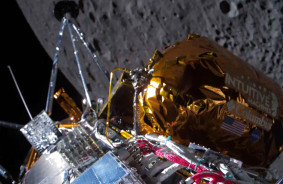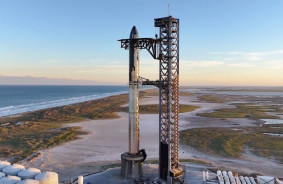On February 18, Rocket Lab successfully launched the ADRAS-J satellite of the Japanese company Astroscale into space using the Electron rocket.
ADRAS-J is a demonstration satellite that is intended to serve as the basis for future efforts to clean up space debris in Earth's orbit. Its mission, selected by the Japan Aerospace Exploration Agency (JAXA) for Phase I of the commercial debris removal demonstration program, involves ADRAS-J rendezvousing with an old upper stage of the Japanese H-2A rocket, which has been in orbit since 2009.
There it goes! 🛰️👋
ADRAS-J is now in orbit, ready to start its mission of rendezvousing with an aging piece of space debris and observing it closely to determine whether it can be deorbited in future.
Proud to be part of this innovative @astroscale_HQ mission studying ways to… pic.twitter.com/WcMexdBhHR
— Rocket Lab (@RocketLab) February 18, 2024
Accumulation of debris in Earth's orbit from decades of space flights is becoming increasingly concerning. Therefore, space agencies worldwide are actively working on solutions to this problem, often engaging private companies to develop potential solutions. One of the most effective ways to combat space debris may be to deorbit or move it to a lower orbit so that it burns up in Earth's atmosphere. ADRAS-J will be the first spacecraft to target a piece of existing large debris, attempting to safely approach and characterize it relying on ground-based data to determine its location.
Over the next few months, ADRAS-J will reach its target and ultimately attempt to get close enough to image and assess its condition to determine if it can be removed.
"ADRAS-J is officially on duty and ready to meet space debris!" - the company wrote on Twitter. "Let the new era of space sustainability begin!"
Source: Engadget














Comments (0)
There are no comments for now